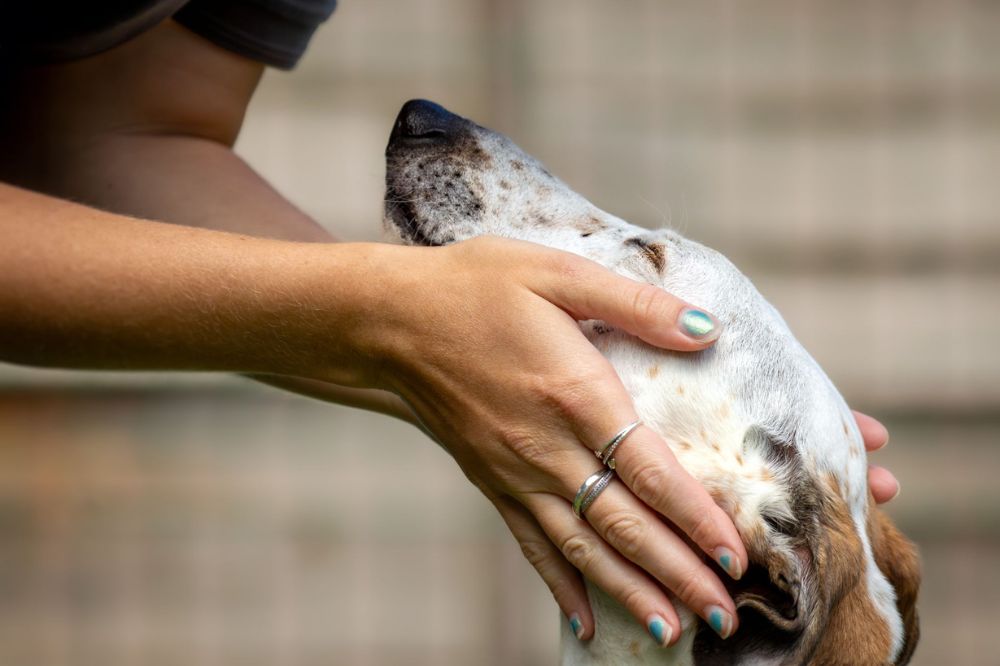Rehoming centres ‘at breaking point’ as animals arrive faster than they leave

The RSPCA is urging the public to consider adopting a pet instead of buying as the number of animals in private boarding soars costing the charity around £500,000 a month.
The charity has warned that the cost of living crisis has left rescue centres facing an “animal welfare crisis” as animals are coming into its care faster than they are being adopted.
Currently, there are more than 1,400 animals waiting in private boarding centres because RSPCA centres are full.
In the first four months of this year, it cost the charity an eye-watering £2.1 million to provide care for hundreds of animals in private boarding centres.
Of that total, almost £1.2 million went on kennelling hundreds of dogs because there wasn’t any space left in any of the RSPCA’s own dedicated centres and branches.
Cost
The RSPCA currently has 1,441 animals in private boarding including 503 dogs – costing more than £50,000 each week – as well as 126 rabbits, 201 cats, 285 horses, 58 exotic animals and 126 farm animals.
Karen Colman, Head of Animal Logistics and Welfare Oversight at the RSPCA, said: “As we celebrate our 200th birthday this year, it’s incredible to see how far animal welfare has come since our founding in 1824.
“But the sad reality is that there’s still so much to do, and we’re currently facing an animal welfare crisis.
“Our rescue and rehoming centres are at breaking point with the number of animals coming in versus the number being rehomed.
“Sadly, more animals in need are coming into us all the time – many who have been the victims of awful cruelty, abuse and neglect – and rehoming rates have struggled in recent years as many families feel the pinch of the cost of living crisis and make the decision not to take on a pet.
“We’re launching an urgent appeal to those families who do feel they commit to the cost and responsibility of a pet to please consider adopting a rescue instead of buying from a breeder or a pet shop.”
The RSPCA has a clear policy that it will not put healthy, rehomeable animals to sleep and euthanasia is only carried out, on advice of a vet, to prevent further physical or mental suffering to an animal.
Money
The charity says it goes to great lengths to find the animals in its care loving homes, whether that takes weeks or months – but that means that animals are staying for longer and spaces are opening up less frequently.
Dr Gaines added: “The cost of living has also led to a reduction in the number of people who are willing to take on an animal as they try to save money, and a recent RSPCA survey found 72% of people were not planning to get a new pet.
“But the crisis is also hitting animal rescue organisations, like the RSPCA. Our food bills have soared, our energy bills to keep the lights and heating on in our centres have also rocketed, and animals are staying with us for longer as fewer people are adopting, which means spaces in our centres are becoming available less often and we need more and more private boarding spaces. It’s quickly becoming a serious welfare crisis.”
Support our Nation today
For the price of a cup of coffee a month you can help us create an independent, not-for-profit, national news service for the people of Wales, by the people of Wales.






These various organisations that import stray and feral dogs from outside the UK must be stopped. Evidently there are plenty of dogs in the UK in need of homes. The Balkans is a source of endemic rabies and other veterinary diseases and these dogs are unsuitable. The RSPCA should move towards getting the imports banned. Those who want to help can get involved with local charities in the countries concerned.
Only heard recently that some charities in UK set up to deal with “local” unwanted pets are importing large numbers of dogs from E Europe and elsewhere. This is making the problem worse, not better. Had those charities used funds to assist with neutering programmes then at least there might be an end or tapering of the problem but it seems that these bodies are now developing a commercial angle which is not helpful.